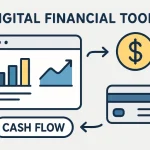Table of Contents
- What Is Medicare and Medicaid Fraud?
- Common Types of Medicare and Medicaid Fraud
- Warning Signs and Red Flags
- How to Report Medicare and Medicaid Fraud
- Protecting Yourself from Fraud
- Support Resources for Victims
- Legal Aspects of Reporting Fraud
What Is Medicare and Medicaid Fraud?
Medicare and Medicaid fraud involves deceitful practices aimed at receiving improper payments from government healthcare programs. Both taxpayers and the healthcare system may suffer large financial losses as a result of these fraudulent operations. Such actions undermine the trust and efficiency of programs designed to support vulnerable populations. Recognizing these schemes early on is crucial for their prevention. If you detect any suspicious activities, stepping up as a Medicare fraud whistleblower can play a pivotal role in identifying and stopping these detrimental practices.
Common Types of Medicare and Medicaid Fraud
There are various forms of Medicare and Medicaid fraud that you should be aware of to help protect yourself and others:
- False Billing: This occurs when medical professionals bill for goods or services that the patient never received. False billing is one of the most common types of fraud and can often go unnoticed without a vigilant review of medical statements.
- Phantom Services: These are claims made for healthcare procedures or treatments that were never performed. In many cases, these services exist only on paper and are designed to inflate billing without delivering any actual medical care.
- Misrepresentation of Diagnoses: This kind of fraud includes exaggerating or completely fabricating patient diagnoses to receive higher payments. Misrepresentation can lead to patients receiving unnecessary treatments, which is unethical and dangerous.
Healthcare fraud investigations frequently reveal intricate and deceptive schemes. The FBI plays a crucial role in uncovering and combating these elaborate operations, ensuring that justice is served and resources are safeguarded.
Warning Signs and Red Flags
Being vigilant about unusual activities in your healthcare dealings can help you spot potential fraud. Look out for the following warning signs that might indicate fraudulent activities:
- Unusual Billing Statements: Always review your billing statements for unexpected charges. Charges for services you did not obtain could be an indication of fraud if you see them. Pay attention to dates and descriptions of services to ensure they align with your actual medical visits.
- Claims for Unfamiliar Services: If your billing statement includes charges for medical supplies or procedures that are unfamiliar or unnecessary, this may be a red flag. These items can sometimes be added to your bill without your knowledge.
- Unexpected Calls or Emails: Be cautious of healthcare providers who contact you unexpectedly offering “free” services or equipment. Scam artists may use these tactics to gain personal information or to bill Medicare or Medicaid for unprovided services.
How to Report Medicare and Medicaid Fraud
Reporting suspected fraud is a critical step in addressing these illegal activities. Here’s how you can report Medicare and Medicaid fraud:
- Gather Evidence: Collect any relevant documents, billing statements, and records that support your suspicions. Having detailed evidence makes your report more credible and actionable.
- Contact Authorities: Healthcare fraud is looked into by organizations such as the Office of Inspector General (OIG) of the Department of Health and Human Services (HHS). They have hotlines and online forms dedicated to reporting fraud, ensuring that your complaint reaches the right people.
- Be Specific: When reporting, provide as much detail as possible. Include the names of healthcare providers involved, dates, descriptions of the fraudulent charges, and any other relevant information. Specific details help investigators understand the scope and nature of the fraud.
By reporting Medicare and Medicaid fraud, you help protect the integrity of these essential healthcare programs and ensure that resources are used appropriately.
Protecting Yourself from Fraud
Awareness is key to protecting yourself from becoming a victim of Medicare and Medicaid fraud. Here are some practical steps to safeguard your information:
- Review Medical Statements Regularly: Make it a habit to review your medical statements and insurance claims for accuracy. Look out for unfamiliar charges and inconsistencies.
- Protect Your Personal Information: Treat your Medicare and Medicaid identification numbers as you would your Social Security number. Do not share this information with unauthorized individuals or entities.
- Be Cautious of Unsolicited Offers: Be wary of unsolicited offers for free medical services or equipment. Such offers could be a front for fraudulent activities intending to gain your personal information or bill the government unlawfully.
The CDC provides valuable information for the public, recognizing possible fraud and protecting personal health information.
Support Resources for Victims
If you have fallen victim to healthcare fraud, you are not alone. Various organizations offer assistance to help you navigate the aftermath of fraud. Support resources include:
- Legal Assistance: Seek help from legal professionals who specialize in healthcare fraud cases. They can provide advice on your rights and guide you through the process of reclaiming lost funds.
- Counseling Services: Counseling services are frequently offered by nonprofit groups to assist victims in overcoming the psychological effects of fraud. Counseling can be vital in overcoming the stress and anxiety associated with fraud.
- Government Programs: Federal agencies offer support programs that assist victims in reclaiming their identities and recovering financial losses. These programs can provide step-by-step guidance and resources to help you move forward.
Legal Aspects of Reporting Fraud
Understanding the legal framework surrounding Medicare and Medicaid fraud is essential for effective reporting. Whistleblower protections are in place to encourage people to come forward without fear of repercussions. Laws such as the False Claims Act provide significant protections and may even offer financial incentives to those who report fraudulent activities. Additionally, some states have their own whistleblower laws that provide further protections.
Being aware of your rights can enable you to significantly impact the battle against fraud. Healthcare legal experts may offer insightful counsel and important insights, making sure you are protected and well-informed throughout the reporting process.







